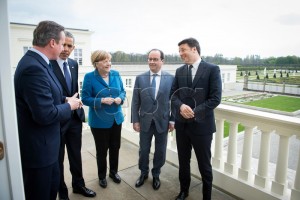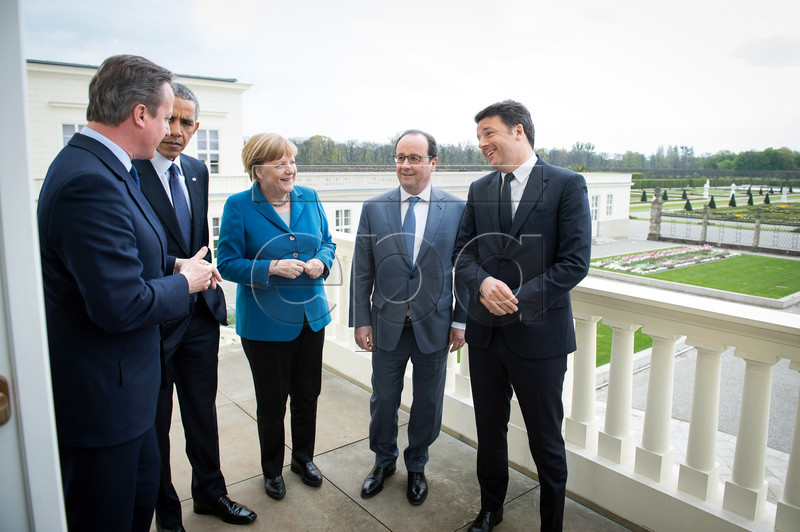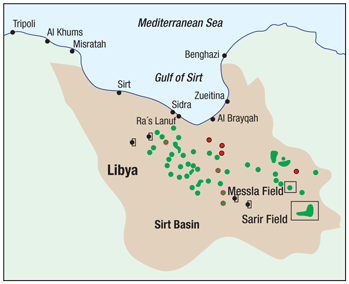By Libya Herald reporters.

Tunis, 25 April 2016:
The leaders of France, Germany, Italy, the UK and USA appeared to have agreed little about . . .[restrict]Libya at their meeting today in Hanover, lasting hardly more than an hour.
Hosted by German chancellor Angela Merkel, president Barack Obama sat down with French president Francois Hollande, Italian premier Matteo Renzi and British Prime Minister David Cameron.
Support for the Presidential Council and prime minister-designate Faiez Serraj was one topic along with possible US participation in the part of the EU’s Operation Sophia that is seeking to stem the flow of migrants to Italy from Libya. Afterwards a US aide briefed that such American involvement would probably be through NATO and was not definite.
Indeed, as far as Libya was concerned there was little definite from the Hanover gathering, despite what Merkel described afterwards as the discussion of “concrete proposals”. The White House put out a statement urging the EU and NATO to “draw on their experience [against people smugglers] in the Aegean to explore how they could work together to address in an orderly and humane way migrant flows in the central Mediterranean”.
Merkel also said at a press conference afterwards that all five leaders had agreed that they were prepared to do whatever was necessary to strengthen the Serraj government, but once again, she did not go into specifics.
There were no decisions taken on the proposed training of Libyan forces nor on what might be done to combat IS in Libya.
The international community has insisted that it will not act in either endeavour until the Government of National Accord requests help. Likewise until the House of Representatives endorses the new government, under the Libyan Political Agreement, Serraj and his ministers do not have the legal status that would enable them to do so. The Russian government is sticking to the line that without the HoR’s approval, the Presidency Council and the GNA cannot get down to business.
Equally, Moscow has indicated that it does not necessarily believe that the UN mandate to attack IS in Syria and Iraq can be extended to assaulting the terrorists in Libya.
The Hanover meeting today clearly had insufficient time to dwell on any possible military involvement in Libya. That question would appear to have been put back until the 7 July NATO summit in Warsaw.
Italy’s hawkish defence minister Roberta Pinotti has been briefing that in Warsaw her country will be pressing for the current anti-IS “Operation Active Endeavor” in Syria and Iraq to be “recalibrated ” to cover Libya. She appears confident that the proposal will become “an active decision”. [/restrict]








